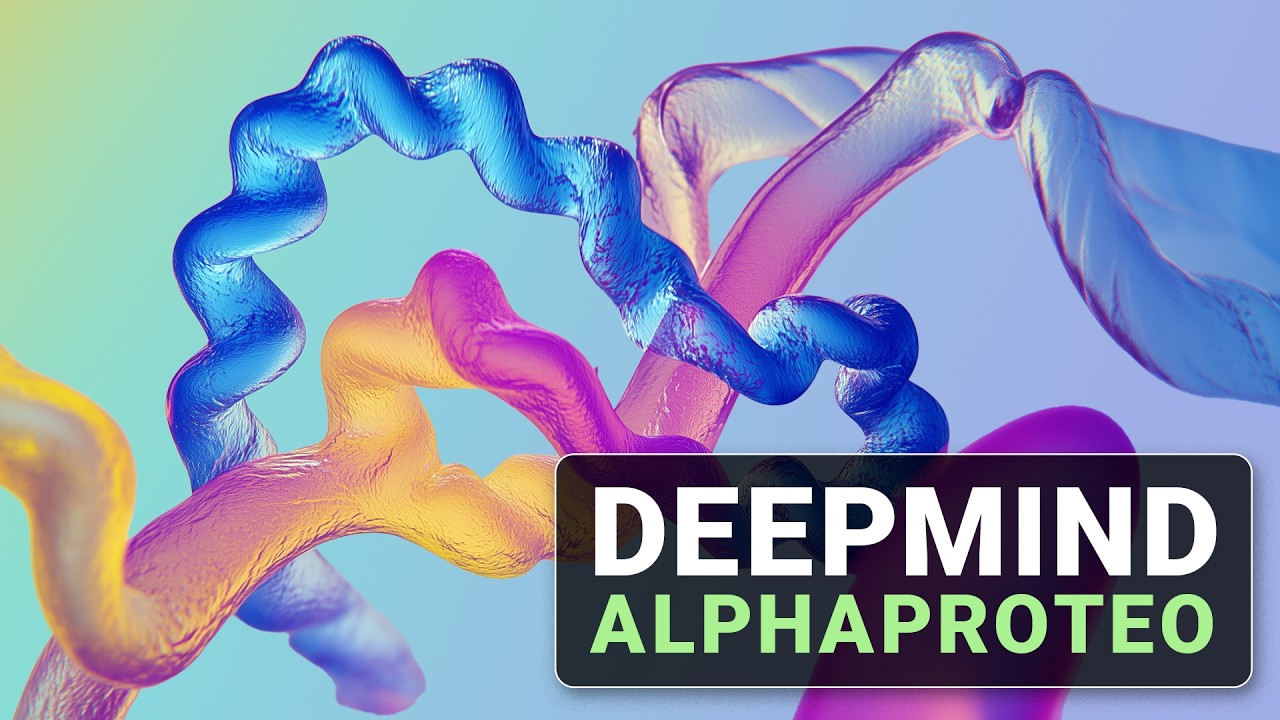In the video, Dr. Károly Zsolnai-Fehér discusses DeepMind’s AlphaProteo, an AI system that advances protein design by enabling the creation of protein binders with significantly improved binding affinities compared to traditional methods. He highlights its potential applications in drug development and disease treatment, emphasizing the importance of accessibility to the research and the rapid advancements in AI technology.
In a recent video, Dr. Károly Zsolnai-Fehér discusses a groundbreaking paper released by Google DeepMind, introducing AlphaProteo, a new AI system that builds upon the advancements made by AlphaFold. While AlphaFold focused on predicting the 3D structures of proteins, AlphaProteo takes a significant leap forward by enabling the design of proteins that can recognize and bind to specific targets. This capability has the potential to revolutionize various fields, including drug development, cell imaging, and agriculture by creating more resilient crops.
Dr. Zsolnai-Fehér highlights the limitations of traditional techniques for designing protein binders, which are often time-consuming and require extensive laboratory testing. In contrast, AlphaProteo streamlines this process by allowing users to input a target molecule and a preferred binding location, after which the AI generates optimized protein designs. The results are impressive, with AlphaProteo’s designed protein binders demonstrating binding affinities that are three to three hundred times better than those produced by conventional methods.
The video emphasizes the practical implications of AlphaProteo’s designs, particularly in addressing proteins associated with severe diseases. The AI’s performance is not just theoretical; it has been validated in a lab setting, achieving a success rate of 9 to 88% for its designs. This level of efficacy suggests that AlphaProteo could significantly advance the field of AI-driven biology, bringing us closer to effective treatments for diseases that currently lack viable solutions.
Dr. Zsolnai-Fehér expresses excitement about the rapid pace of breakthroughs in AI research, noting that significant advancements are occurring almost every few months rather than every decade or year. He also underscores the importance of accessibility, as the research paper detailing AlphaProteo’s methodology is freely available to the public, representing a valuable resource for researchers and practitioners alike.
In conclusion, the video serves as a celebration of the potential of AlphaProteo and its implications for humanity. Dr. Zsolnai-Fehér encourages viewers to consider how they might utilize this innovative technology and invites them to engage in the discussion. He also urges viewers to subscribe for future updates on similar groundbreaking research, highlighting the importance of staying informed in this rapidly evolving field.
